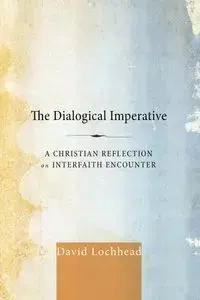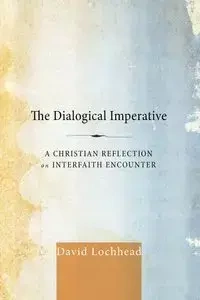The Dialogical Imperative - David Lochhead
The Dialogical Imperative - David Lochhead
AutorzyDavid Lochhead
EAN: 9781610978927
Symbol
982GHS03527KS
Rok wydania
2012
Oprawa
Miekka
Format
15.2x22.9cm
Język
angielski
Strony
114

Bez ryzyka
14 dni na łatwy zwrot

Szeroki asortyment
ponad milion pozycji

Niskie ceny i rabaty
nawet do 50% każdego dnia
Niepotwierdzona zakupem
Ocena: /5
Symbol
982GHS03527KS
Kod producenta
9781610978927
Rok wydania
2012
Oprawa
Miekka
Format
15.2x22.9cm
Język
angielski
Strony
114
Autorzy
David Lochhead

What is dialogue? What are the goals of dialogue between faiths? Are they attainable? Are they compatible with Christian faith? This important book addresses the issue of dialogue from a different, even unique, perspective: as the relationships, in social and historical context, between faiths.
David Lochhead first differentiates between several ideological stances (often categorized as simply ""exclusivity"" or ""inclusivity"") that have defined Christian attitudes toward other faiths. He considers the sociological as well as theological dimensions of these stances, concluding that a theology of interfaith dialogue ""must ultimately be grounded in a theology of the world.""
Lochhead brings fresh insights to a reading of Barth on the theological significance of religion. He argues that, while generally considered otherwise, Barth's view is not inherently hostile to interfaith dialogue. Rather, Barth poses questions of the utmost importance to reconciling dialogue with Christian faithfulness. Based on this, Lochhead proposes a stance of ""faithful agnosticism""--the refusal to make a priori valuations of other faiths--as the attitude most conducive to constructive interfaith relationships. Exploring the notion of dialogue as a means to truth Lochhead then discusses Plato and Buber from the dialogical perspective and addresses the question of whether a doctrine of revelation must be universalized in order to permit interfaith dialogue.
After examining several views of the ultimate goals of dialogue (as understanding, as negotiation, as integration, or as activity) Lochhead concludes by explicating the import of the dialogical imperative for Christian theology and mission. A clear, concise treatment of the nature and goals of interfaith dialogue, The Dialogical Imperative affirms the dialogical approach from within the Reformed Protestant tradition.
EAN: 9781610978927
EAN: 9781610978927
Niepotwierdzona zakupem
Ocena: /5
Zapytaj o produkt
Niepotwierdzona zakupem
Ocena: /5
Napisz swoją opinię

